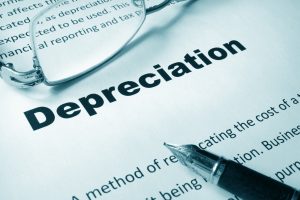If You Lose Money On The Sale of Your Minneapolis Duplex Do You Still Owe Taxes?
 One of the greatest things about investing in real estate over other assets like the stock market or precious metals is the opportunity to realize tax savings as a result of depreciation.
One of the greatest things about investing in real estate over other assets like the stock market or precious metals is the opportunity to realize tax savings as a result of depreciation.
If you’re like me and hearing fancy accounting terms makes you want to cover your ears and scream, there’s no need. It’s just a big word for the fact that stuff, including appliances, landscaping and buildings themselves actually get worn out over time.
As a result, the IRS lets you take a tax deduction for each.
If you’ve got a good tax professional, they have already done this on your taxes.
The downside of this benefit is when it comes time to sell, the IRS wants some of that repaid. They tax the part of the housing provider’s gains from depreciation reductions at a rate of 25%. They may also collect capital gains tax on the rest of the profits at a tax rate of 20%. And that’s before the state takes their cut.
While there are strategies to mitigate some of these taxes, like a 1031 exchange, what happens if you actually don’t have a profit on the property? Do you still owe depreciation recapture?
The good news is, no. If you lose money on a property, you are not subject to that tax.
Remember you are taxed on the amount above and beyond your “basis”. This is just another fancy accounting word for what you have into the property. For example, the acquisition cost plus any major repairs or improvements you made.
Call it the silver lining of what may be a bad situation.
And of course, as always, you should consult a tax professional before making a decision to sell.

